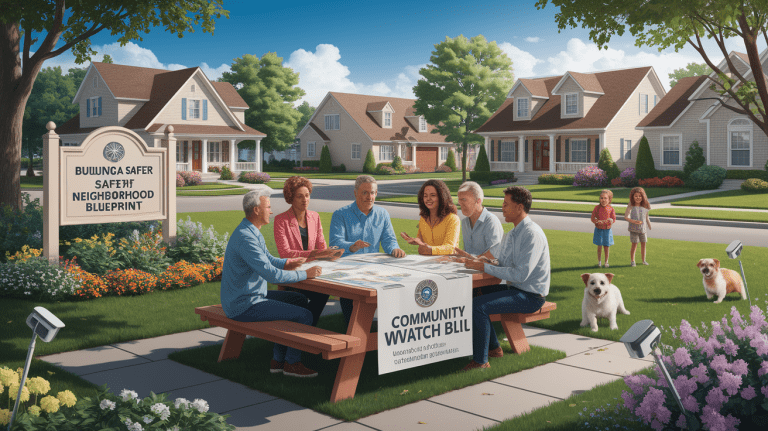Digging into St. George Food Waste Composting and Community Resilience
Digging Into the Dirt: St. George’s Composting Basics
Here in St. George, food waste composting is gaining ground as more folks discover just how much of our kitchen scraps and yard trimmings can be turned into something valuable. At its heart, composting is the natural process of breaking down organic matter—like fruit peels, vegetable scraps, and food-soiled paper—into a nutrient-rich soil amendment.
By separating food scraps from regular trash, residents help keep organic waste out of landfills. This matters because food waste in a landfill produces methane, a potent greenhouse gas. Instead, when we collect these materials for composting, they’re processed into healthy compost that enriches soil and supports local gardens, parks, and landscaping projects.
If you’re not sure what can go in the compost bin, think of “anything that was once alive,” avoiding plastic, glass, or metals. Simple guidelines and a bit of practice make composting second nature.
Local Composting Programs: Curbside and Beyond
While St. George is still exploring expanded municipal composting, it’s helpful to look at nearby programs for inspiration. In Prince George’s County, for example, the PGC Composts service offers weekly curbside pickup for food scraps and yard waste. Residents collect organics in a dedicated bin, which are then composted at local facilities.
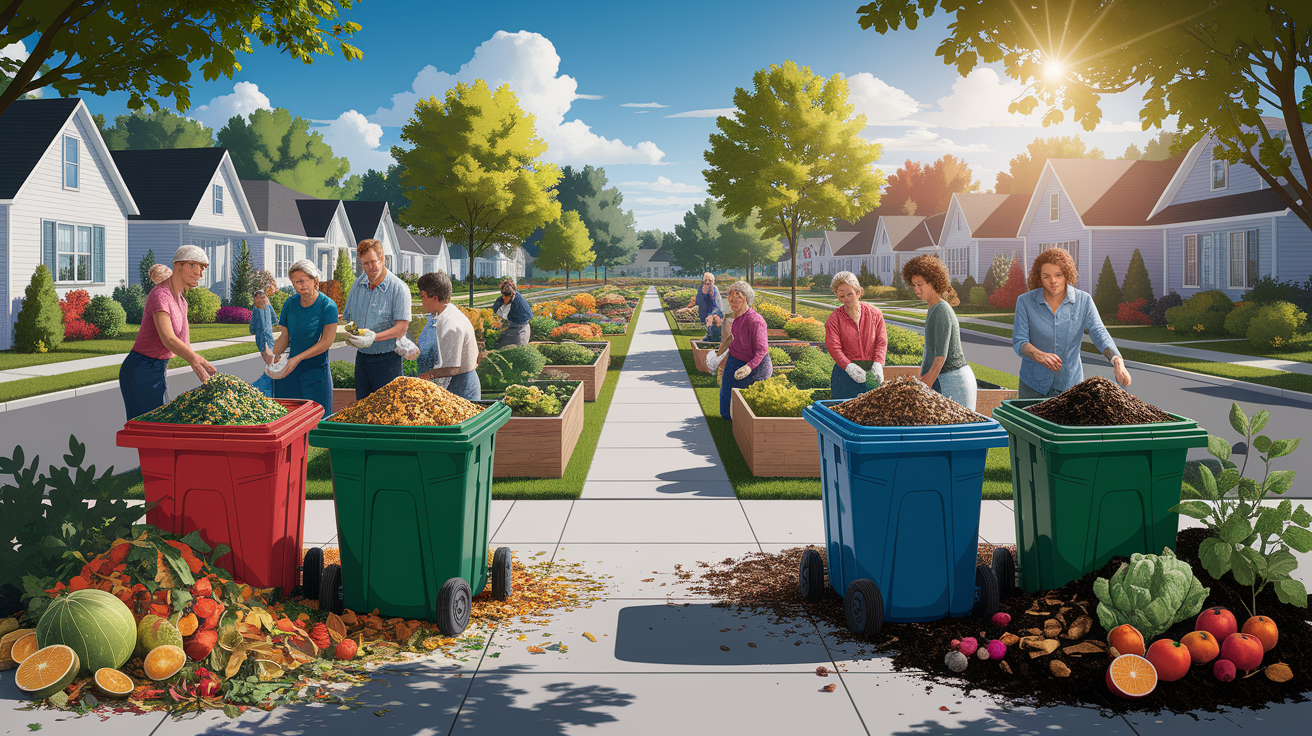
Some communities also pilot drop-off systems. Concord’s experience with a community compost drop-off program showed how these sites can increase participation, especially for those without curbside pickup. Partnerships with private providers—like Medford’s collaboration with Garbage to Garden—have proven another way to make composting more accessible.
For St. George residents, exploring backyard composting or private subscription services can fill the gap until wider municipal options are in place.
Why Compost Matters: Environmental and Economic Wins
Composting delivers a double benefit—helping the planet and the local economy. Environmentally, composting supports landfill diversion, reduces greenhouse gases, and cuts our carbon footprint. It also returns nutrients to the soil, improving soil health and water retention for urban agriculture and community gardens.
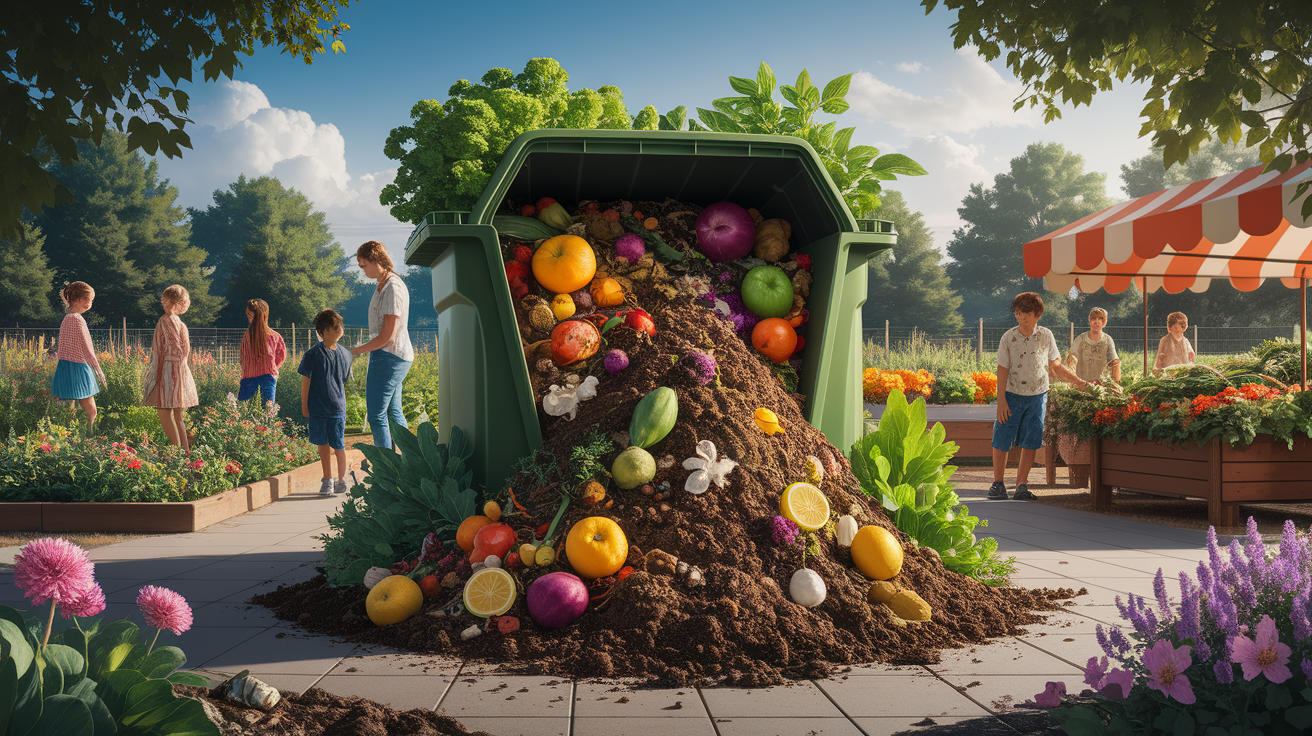
Economically, composting helps avoid the high costs of landfill expansion and reduces municipal trash disposal expenses. In places like Wellesley, their food waste program not only produces rich compost but also generates electricity, heat, and liquid fertilizer—turning waste into renewable resources that directly benefit the community.
These benefits ripple outward, supporting a more resilient local food system and sustainable waste management practices.
Tackling Composting Roadblocks
Of course, composting programs face their share of challenges. A common hurdle is contamination—when non-compostable items like plastic bags end up in the compost bin, the load can be spoiled. Overflow during peak times and low participation rates can also make programs less viable, as seen in Concord’s pilot program.
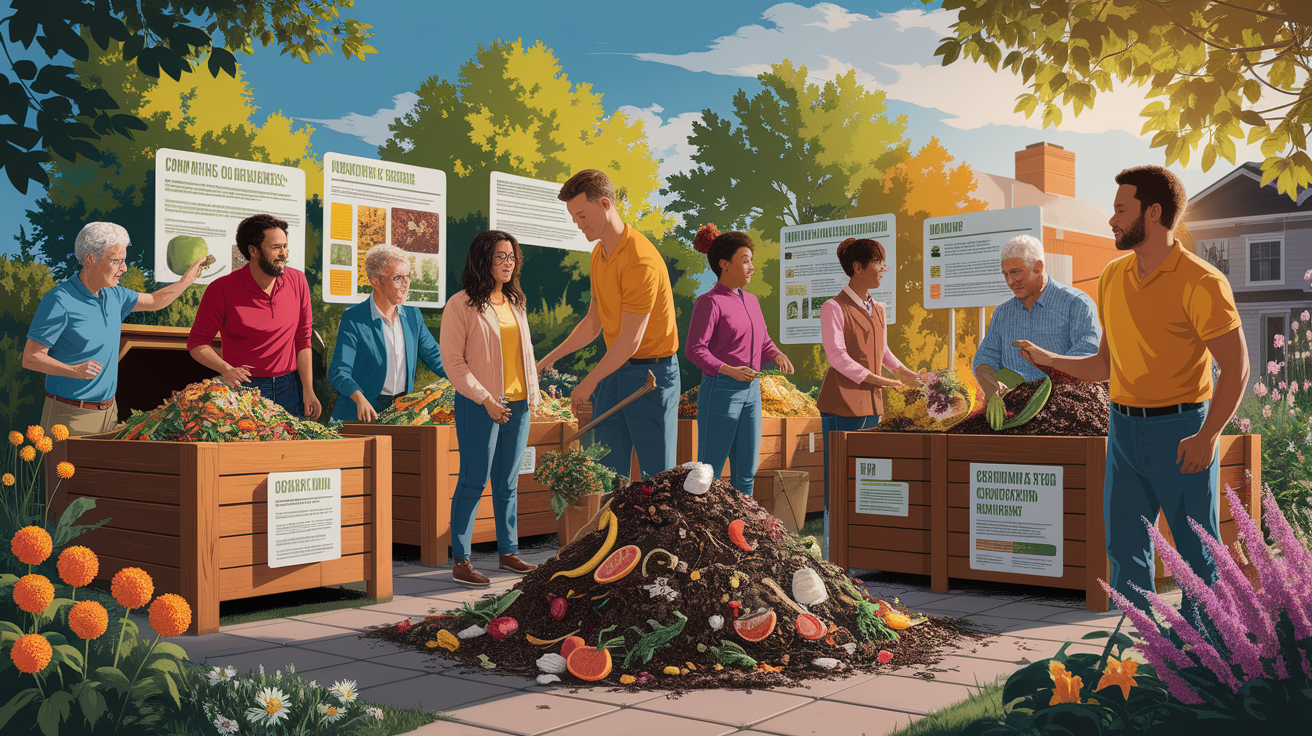
In some areas, seasonal suspensions like those described in Waltham’s composting program mean residents must find interim solutions. Overcoming these issues often comes down to clear public education, ongoing feedback, and offering both curbside and drop-off options to meet different needs.
From Waste to Resilience: Strengthening St. George
When a community captures organic waste and converts it into compost, it takes a step toward ecological resilience. This “waste-to-resource” approach reduces pollution, protects water and air quality, and supports cleaner, greener neighborhoods.
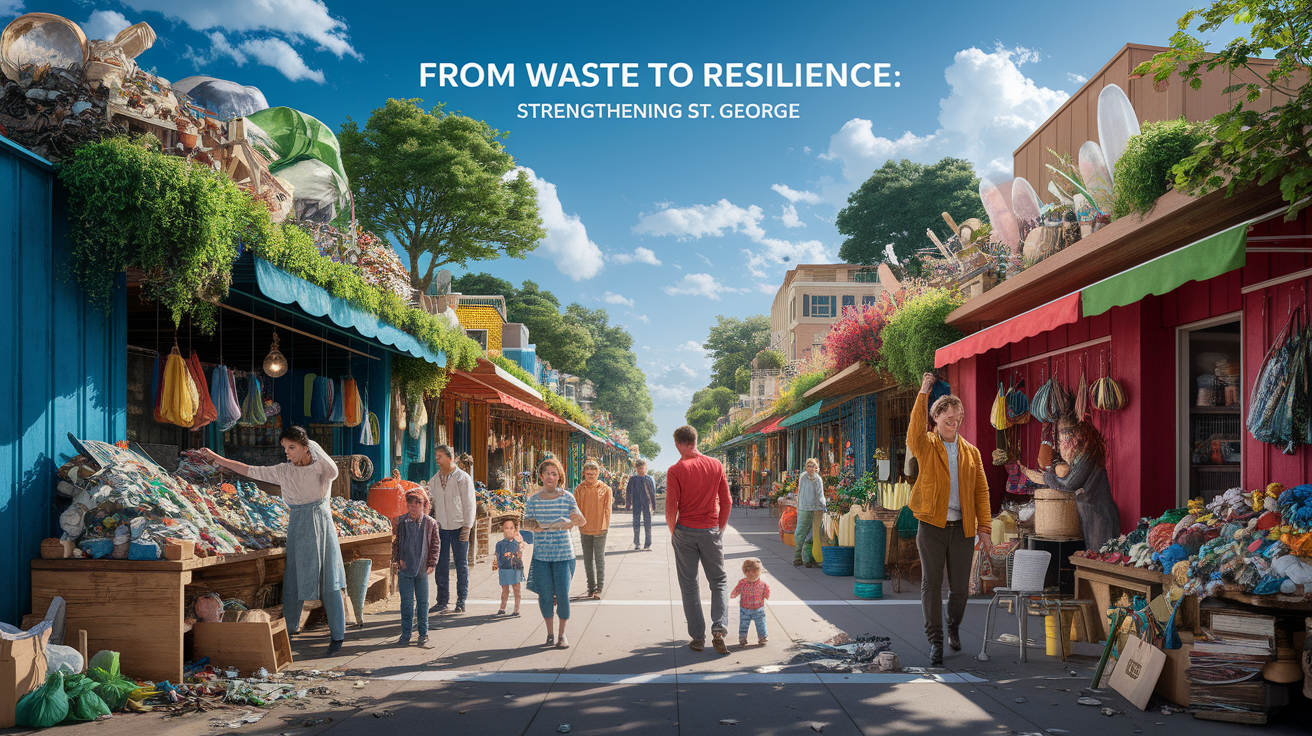
In places with strong composting networks, like Medford’s curbside collection program, residents and local government work together to build sustainable communities. In St. George, growing participation in composting—whether through backyard setups, shared community bins, or eventual municipal programs—can bolster our local soil health, enhance food security, and reduce our reliance on distant landfill sites.
Closing the Compost Loop: Next Steps for Residents
If you’re ready to get started with composting in St. George, here are some practical steps:
- Start small with a countertop compost pail or outdoor bin for fruit, vegetable, and yard waste.
- Check with local waste management for updates on curbside organics collection or drop-off options.
- Consider partnering with neighbors on a shared compost bin for your block or community garden.
- Learn the do’s and don’ts of composting to avoid contamination.
- Attend local workshops or watch for announcements from the city on expanded green waste programs.
Every banana peel, coffee ground, and apple core you keep out of the landfill strengthens both our environment and our sense of community resilience. Whether you’re composting on your patio or advocating for larger city programs, you’re part of the solution here in St. George.



